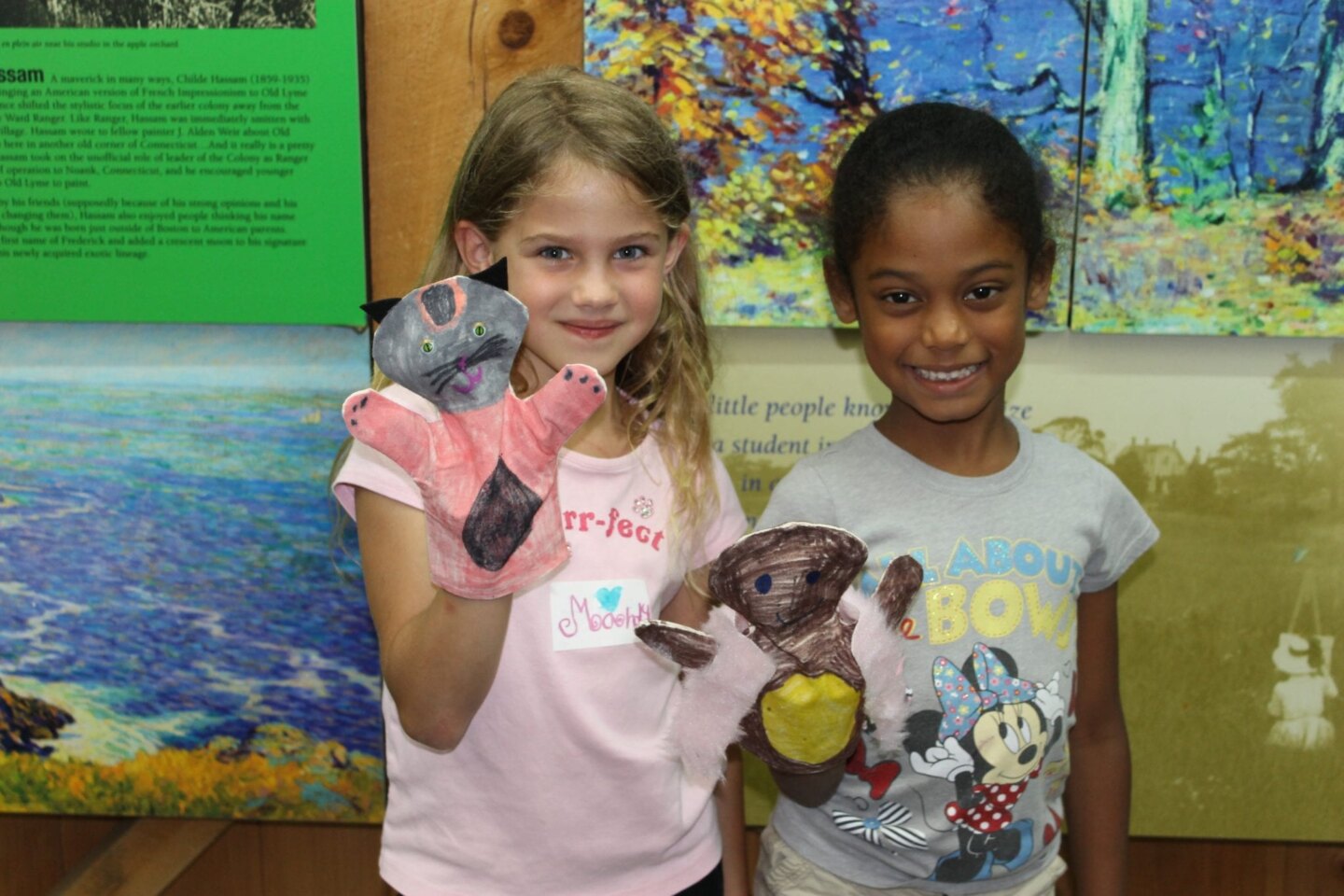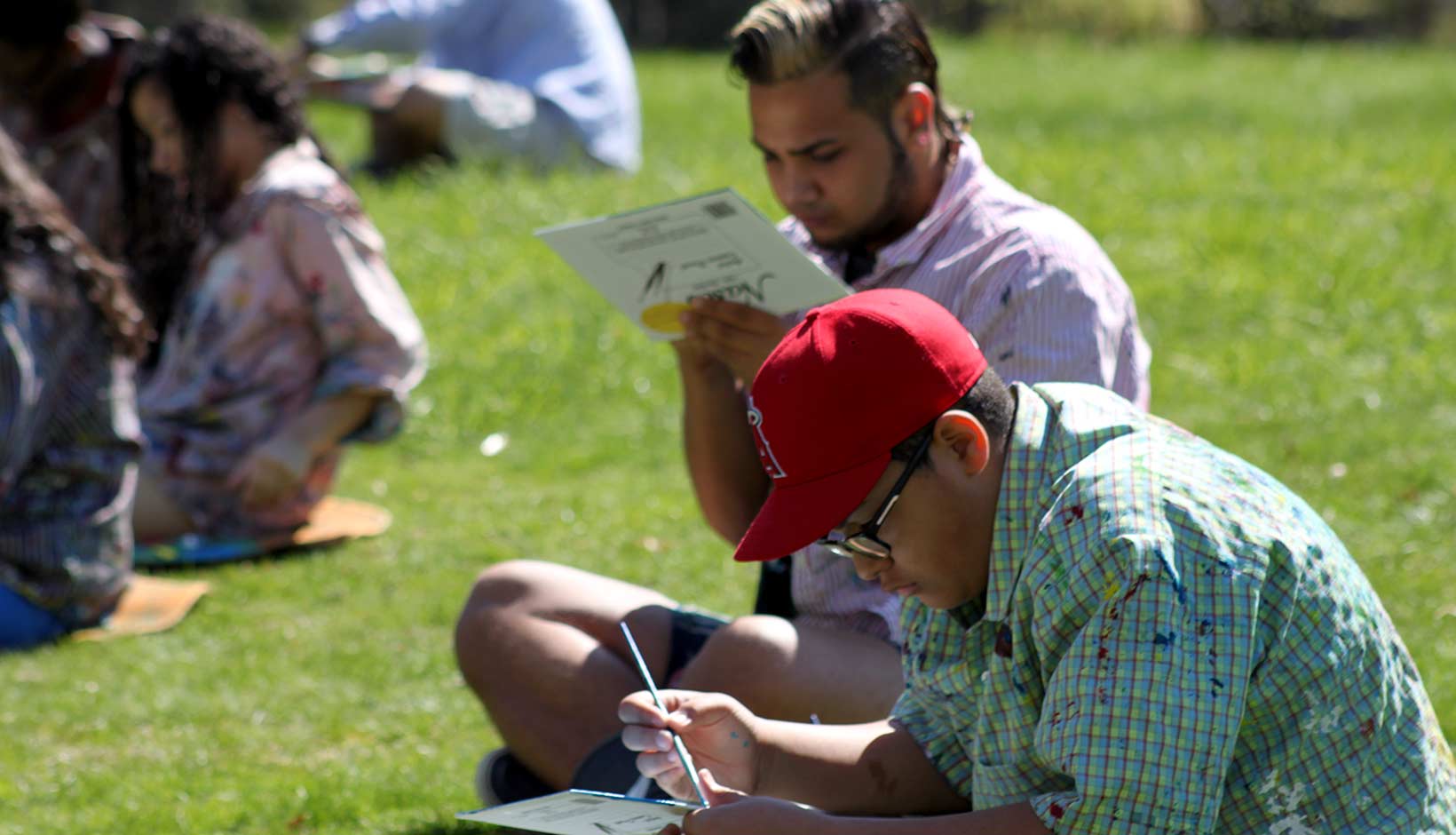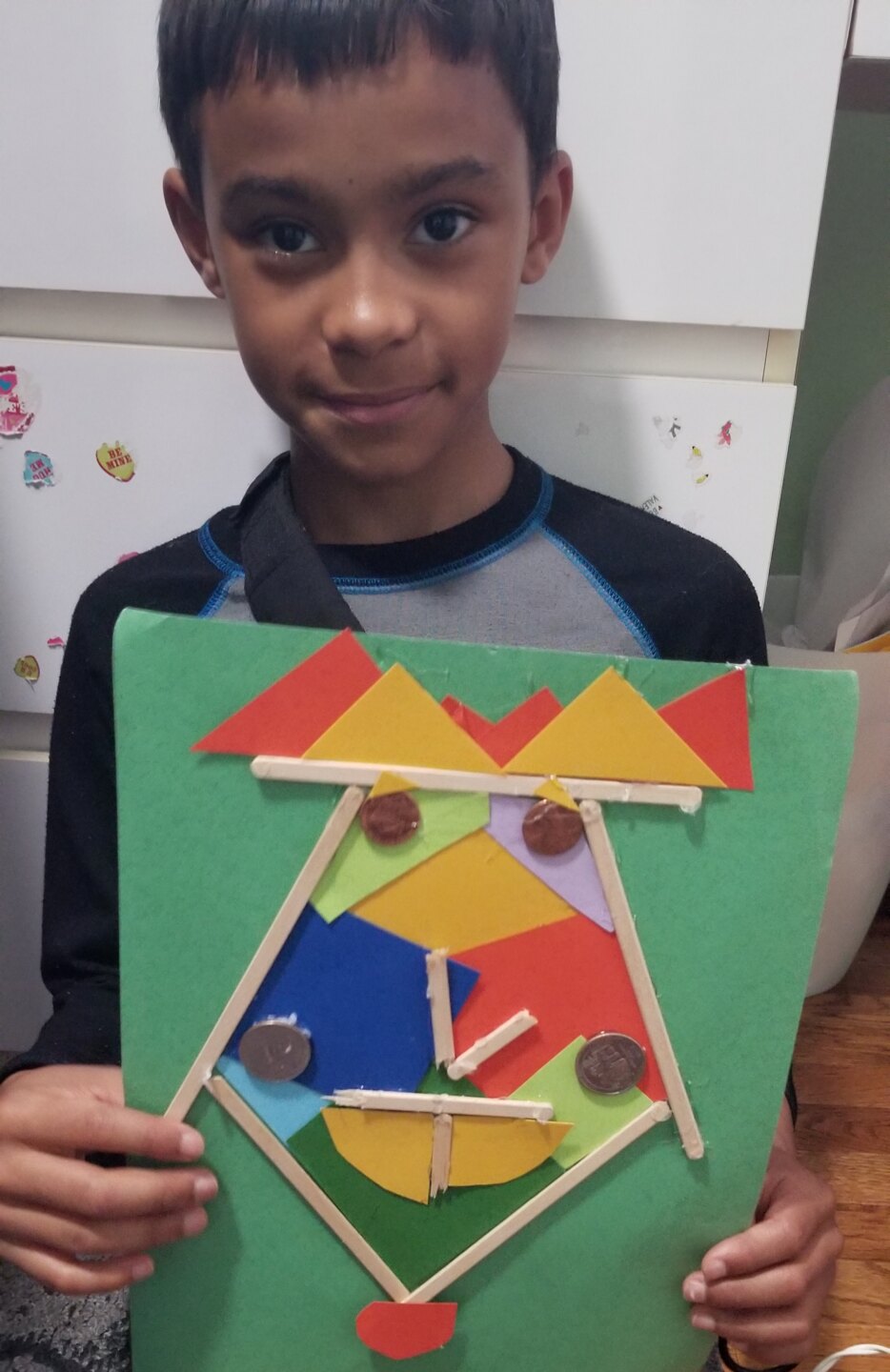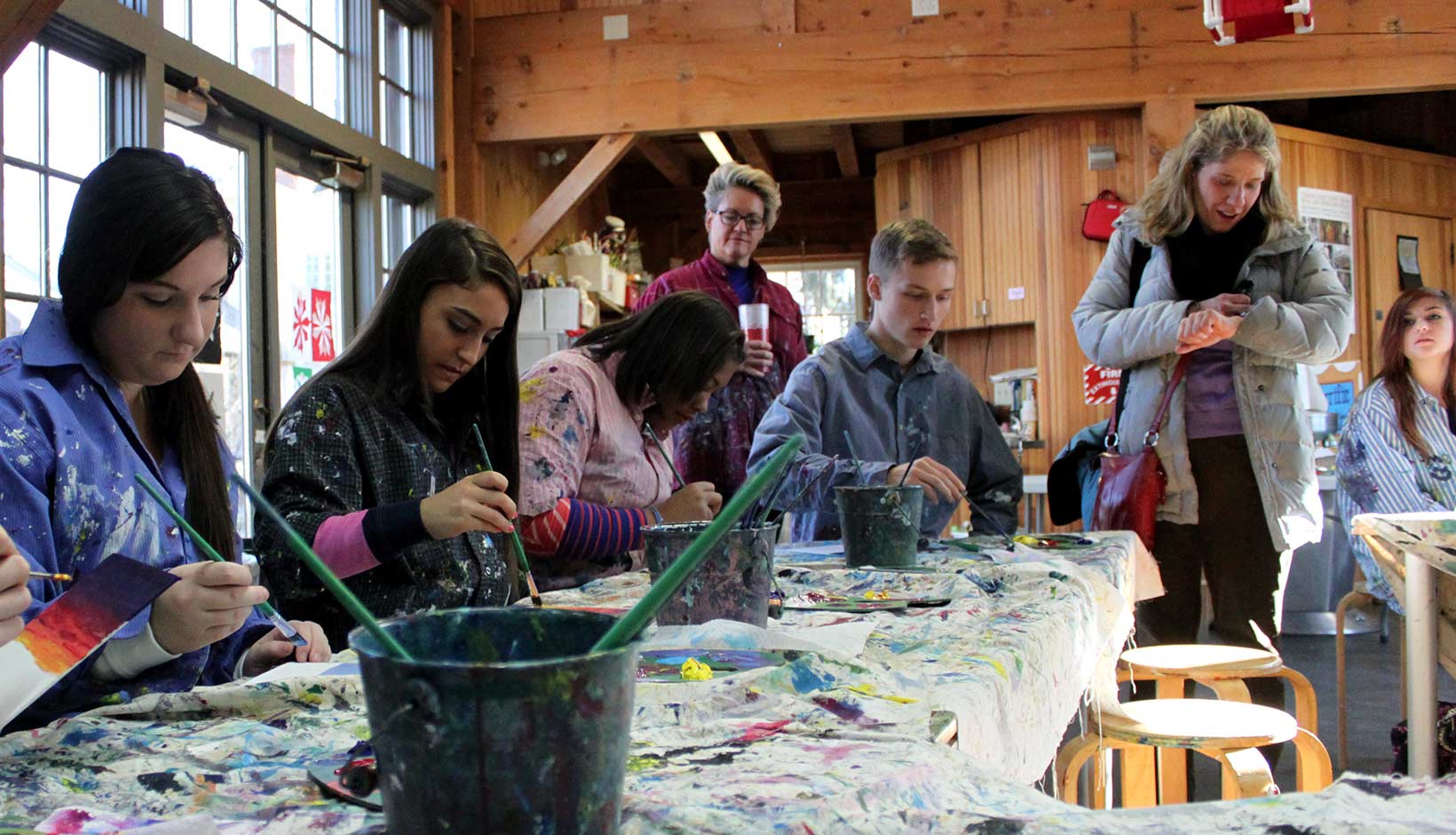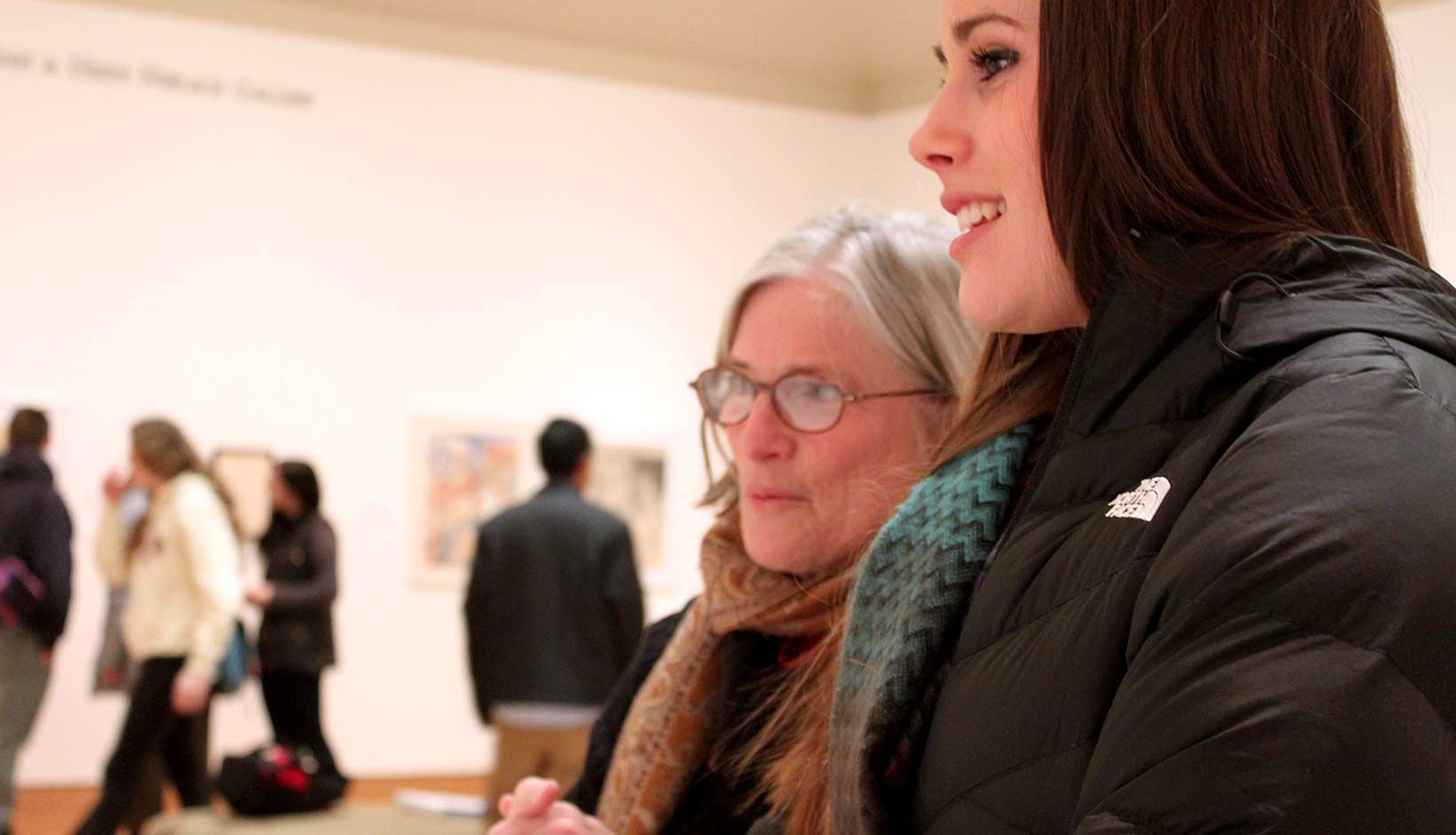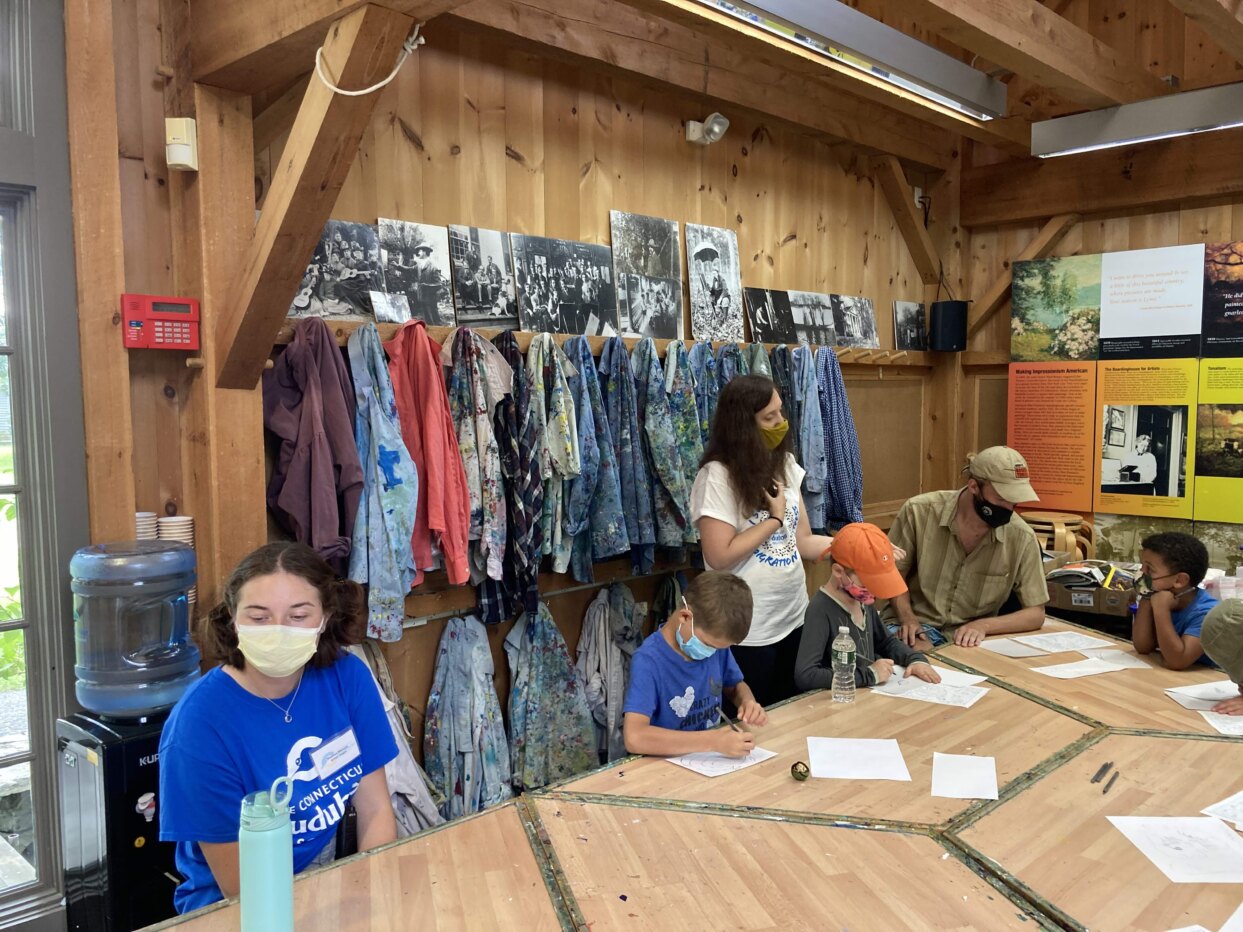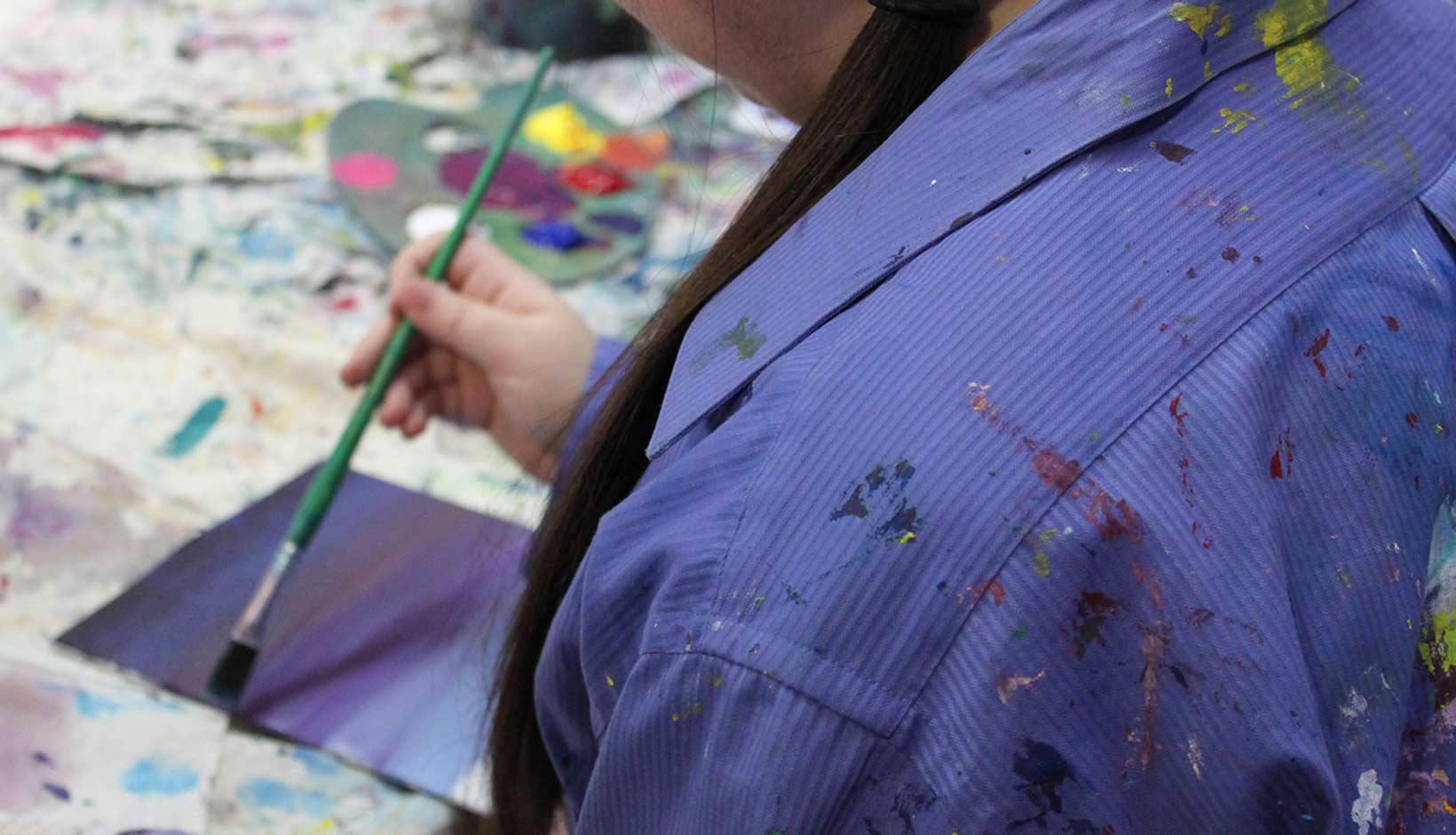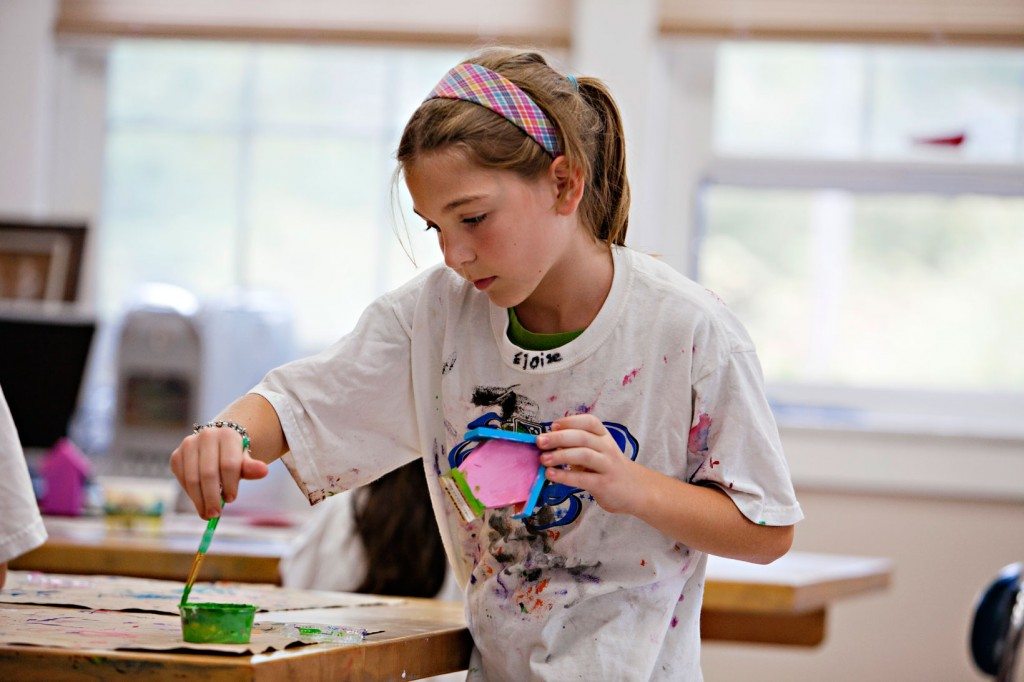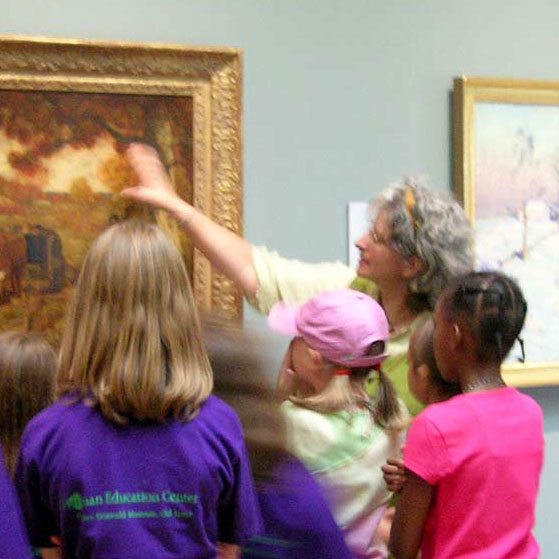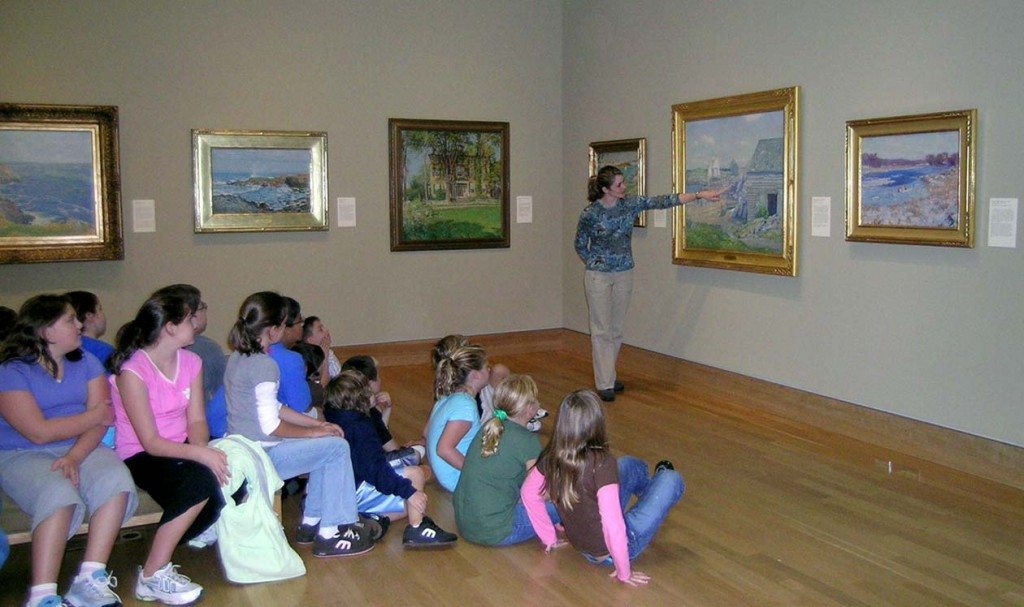Learn
Schools & Homeschoolers
- Museum Hours: Tuesday through Sunday, 10am to 5pm.
The Museum offers many fun and rewarding field trip options for students! Please contact Julie Garvin-Riggs to schedule: Julie@FloGris.org, 860.434.5542 x113.
About Your Trip
Our Field Trips combines art, history, and nature, and can be geared for students of all ages and grade levels.
The Florence Griswold Museum is one of the premiere destinations for school groups of all ages. From preschool-aged children to high school students, the campus is a rewarding experience for all hands-on, minds-on educational experiences.
Field trips are coordinated by our Museum Educator working with enthusiastic volunteer educators to combine the art, history, and nature into one remarkable visit.
Upon arrival, classes are divided into smaller touring groups and rotate between the three activities outlined below. The field trip is approximately 2 hours and 15 minutes.
Please note: many groups also choose to stay on campus for a picnic lunch (weather permitting) or eat in our climate-controlled Education Center.
Cost is $15 per student and includes admission, guided tours, facilitated art lesson, and all art supplies.
Groups receive 1 FREE adult admission (teachers or chaperones) for every 15 students in the group.
Adult Chaperones are FREE.
Home School Design your own Program
To use the Hartman Education Center for two hours for tour and hands-on program, which can be tailored to your group’s curriculum, is $15 per student.
Wee Faerie Village
Activity Options
During this event, miniature faerie installations will be installed in various nooks and crannies on the Museum grounds. This is in addition to the historic Griswold House and new art exhibitions.
There are two popular options for you and your students exciting outdoor exhibit as well as the great art and history on view at the Museum. For groups of 15+ only.
Option #1: Once Upon a Palette Field Trip to the Museum
Reserve a 2-1/2 hour field trip to the Museum led by our education staff Monday-Friday. This option (for groups of 15 or more) includes guided tours of the historic Griswold House and the Wee Faerie Village as well as the chance to paint en plein air. Field trips are $15 per student. Please note: tour dates sell out fast!
To reserve a date, or for more info, contact: Julie Garvin Riggs 860.434-5542, x113 or x123, or Julie@FloGris.org.
Option #2: Self-Guided Tours of Wee Faerie Village
You can also tour the Wee Faerie Village on your own with your class and chaperones using the village map. For this outside-only option, (for groups of 15 students and adults or more with advance reservations) students, teachers, and parents all pay $5 each. Please note this group payment option must be paid in a single transaction upon arrival.
Contact Kyle Gregoire at 860.434.5542, x110 or Kyle@FloGris.org for this option.
More information about Wee Faerie Village...Our current Field Trips feature these three student-centered learning activities
Activity I: Learning the History (30 minutes)
This student-centered guided tour introduces students to Miss Florence and the Artists of Old Lyme. Miss Florence was a sea captain’s daughter who opened her home to painters traveling from New York and elsewhere. These artists became the Lyme Art Colony, a group famous for painting landscapes in both the Tonalist and American Impressionist styles. A visit to the House shows where these important artists slept, ate, and played games when they were not out in the landscape making paintings. The tour introduces an artistic vocabulary through an investigation of the collection including over 40 pictures painted on the doors and walls of the historic interior.
Activity II: Exploring the Art (30 minutes)
Field trips also include a visit to the galleries to investigate the current exhibitions on view in the Krieble Gallery, the Museum’s state-of-the-art facility on the banks of the Lieutenant River.
The Museum’s educators use a variety of learning-to-look strategies with your students to enhance their visual literacy using remarkable objects from the Museum’s collection and often on loan from other institutions or private collections.
Activity III: Painting the Landscape (60 minutes)
During their visit, students step into the role of an Old Lyme artist. This hands-on activity begins with an introductory lesson about the tools and techniques of the American Impressionists in the Education Center. Students then paint a landscape using authentic artist’s materials (acrylic paints, palette, brushes, canvas board, smock) down by the river or in the Education Center (inclement weather option). Each student will leave with a completed 8 x 10 landscape perfect for an in-class exhibition.
Touring Options
These can be substituted for either Activity I or II above, or added to the schedule (requires additional time).
Option I: Visiting the Chadwick Studio (30 minutes)
Visit the historic studio of American Impressionist William Chadwick and learn more about the painting tools and techniques of the Lyme Art Colony. This program strengthens the students’ artistic vocabulary and understanding of the daily activities of an artist in Connecticut, and prompts discussion regarding the trials and triumphs of the plein-air painters.
Option II: Tonalism vs. Impressionism (30 minutes)
Visit the exhibition An American Place: The Art Colony at Old Lyme in the galleries on the second floor of the Griswold House for an interactive lesson on the two dominant painting styles enjoyed at the Lyme Art Colony. Learn the characteristics of both Tonalism and American Impressionism through the examination of stellar examples in the Museum’s collection.
Option III: Gardens & Grounds (30 minutes)
Students walk the grounds of the Museum to discover the places the historic artists painted and played. They can study the architecture of the Griswold House before walking through the historic gardens and orchard, and ending along the banks of the Lieutenant River to learn its role in commerce, ecology, and as an important subject for the artists.
Homeschooler Classes at the Florence Griswold Museum
Each session: $15 per participant and includes free Museum admission for parents or guardians. Classes limited to 25 students.
Call the Museum at 860.434.5542 x113 to schedule.
Before Your Tour Date
Things to Review with Your Students
Your class will be divided into four smaller touring groups and rotate between the activities. Please consider how to divide groups up evenly before arriving.
Please review with your students that food, drink, chewing gum, ink pens, cameras, cell phones, cell phones used as cameras, and water bottles are not allowed in the Museum.
Remind your students that not to touch any of the paintings, furniture or sculptures on view. Please explain that even the cleanest hands leave fingerprints that are filled with salts, oils, and acids that are damaging to works of art over time.
While at the Museum students should extend all courtesies of the classroom. Common sense rules such as talking only one at a time, raising hands to be called upon, and using indoor voices are all appropriate behavior when touring the Museum.
You might want to brainstorm about appropriate behavior when visiting a museum. Often, students have great ideas about how to best enjoy their visit.
Remind students that photography in the gallery is not permitted, but they might want a camera to capture the beauty of the historic house, gardens, and river. Teachers may take photographs of the tour in action for documentation, but not individual works of art (even without a flash).
Divide your class into the number of equal-sized groups outlined on the confirmation form with at least one adult accompanying each group of students. Having the students wear nametags is ideal. This allows the educators to call on them by name.
There are several pre-visit activities available on this site. For starters, reading the “History of Miss Florence and the Artists of Old Lyme” to your class followed by a discussion using the Think Fast Questions will prepare your students for the experience.

